- Latest articles
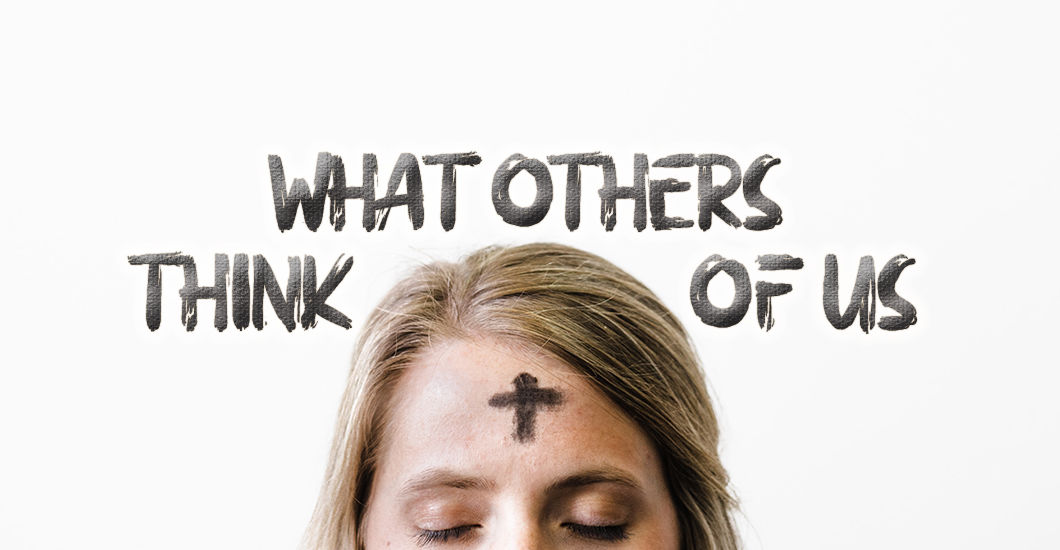
I have had several recent conversations with friends and professional acquaintances on the subject of openly sharing our Catholic faith. I was a little surprised at how many of them expressed strong reluctance to being open about their beliefs. The reasons given included “We are not allowed to do that at work,” “I don’t want to offend anyone” and “I don’t like to discuss that outside of my parish.” There was a central theme running through their responses which has been the catalyst for a lot of my reflection and prayer over the last few days:
Do we ever stop to consider how often our public actions and thinking involving our Catholic faith are influenced by a misguided concern for what others think of us?
During the day, how many times do we have missed opportunities to stand up for Christ or share our faith? Is it the conversation we avoid with a troubled co-worker? Is it our refusal to publicly make the Sign of the Cross and say a blessing over our meals? Is it standing up to someone who is attacking the Church? How about the person who is quietly curious about the Catholic faith and is only waiting on an invitation to attend Mass with us? Too often a misplaced concern for the opinion of those around us keeps us from embracing our responsibilities. However, it is crystal clear that Jesus expects us to openly share our faith and acknowledge Him before others if we read the Gospel of Matthew 10:32-33, “Everyone who acknowledges me before others I will acknowledge before my heavenly Father.
But whoever denies me before others, I will deny before my heavenly Father.”
Christ was our greatest example on how to not be concerned about the respect of others. He always taught the truth, regardless of the audience or His surroundings. His enemies recognized this aspect of Christ’s teaching in Matthew 22:16, “Teacher, we know that you are true, and teach the way of God truthfully, and care for no man; for you do not regard the position of men.”
Francis Fernandez, author of “In Conversation with God,” makes this observation (about sharing the truth): “Christ asks His disciples to imitate Him in this practice. Christians should foster and defend their well-earned professional, moral and social prestige, since it belongs to the essence of human dignity. The prestige is also an important component of our personal apostolate. Yet we should not forget that our conduct will meet with opposition from those who openly oppose Christian morality and those who practice a watered-down version of the Faith. It is possible that the Lord will ask of us the sacrifice of our good name, and even of life itself. With the help of His grace we will struggle to do His will. Everything we have belongs to the Lord.”
He goes on to write, “In such difficult circumstances the Christian ought not to wonder which path is the most opportune to follow, but rather, which path is the most faithful to Christ. Certainly, our desire for popularity is the direct consequence of self-love. Our behavior will be the proving-ground of our deepest convictions. This firmness in the Faith is often an excellent testimony to the beliefs of the Christian. In some cases it can cause people to begin their return to the House of the Father.” I would suggest that not taking a stand for Christ and openly sharing our true beliefs may be one of the biggest obstacles for many of us to grow in our faith…and possibly for those around us who are watching our example.
If you are a business person, in career transition, a stay at home mom, a student or a senior citizen, chances are that you have faced this struggle with worrying about what others think of you. It is a natural human tendency that affects me and everyone I know. We all want to be liked, respected and included. But, here is the catch…we cannot separate our spiritual selves from our physical being. The faith we profess is part of who. This prestige is also we are and cannot be hidden away. “One of the gravest errors of our time is the dichotomy between the faith which many profess and the practice of their daily lives… The Christian who shirks his temporal duties shirks his duties towards his neighbor, neglects God himself, and endangers his eternal salvation” (Second Vatican Council, Gaudium et Spes).
Can we all agree that being “Stealth Catholics” is not the answer? If so, here are five thoughts on how to overcome our fear of what others may think of us when publicly sharing our faith:
1. Show me that in the policy manual. I have heard many times that expressing our faith in the workplace is “against company policy.” Have you actually seen a written policy addressing making the Sign of the Cross and praying at meals, praying quietly at your desk, going to Mass at lunch or wearing ashes on your forehead on Ash Wednesday? I know there may be exceptions, but let me challenge all of us to consider the possibility that much of our fear may be based on a false perception of possible persecution and not reality.
2.“Preach the Gospel at all times, use words if necessary.” Please reflect on these words of wisdom often attributed to Saint Francis of Assisi. It rarely occurs to us to think about our own faith journeys, the example we set for others and the Christ-inspired joy we should radiate as the most effective ways to share our faith. Letting others see Jesus Christ at work in us is a powerful form of witness that will attract others who want what we have in our lives. “You are the salt of the earth. You are the light of the world. A city set on a mountain cannot be hidden. Just so, your light must shine before others, that they may see your good deeds and glorify your heavenly Father” (Matthew 5:13-14 and 16).
3. Start the conversation with a little sharing of our own. Transparency invites transparency! We cannot expect someone to open up to us unless we are willing to do the same. Our faith journey is a blessing, meant to be shared, and the witness we give may have a profound influence on someone. As we read in 1 Peter 3:15-16: “Always be prepared to give an answer to everyone who asks you to give the reason for the hope that you have, but do it with gentleness and reverence, keeping your conscience clear, so that, when you are maligned, those who defame your good conduct in Christ may themselves be put to shame.”
4. Reality Check: Pursuing Heaven vs. Being Popular. Heaven is our ultimate destination and not this place called Earth. Will our critics help us get to Heaven? Will they stand up for us during tough times? No, they will pull us into a secular way of life which has little room for God and where materialism and popularity are the fashionable idols of the day. Francis Fernandez wrote that overcoming human respect is part of the virtue of fortitude. He describes the challenges a Christian may endure as “…rumors and calumnies, mockery, discrimination at work, the loss of economic opportunities or superficial friendships. In these uncomfortable circumstances it may be tempting to take the easy way out and ‘give in.’ By such means we could avoid rejection, misunderstanding and ridicule. We could become concerned at the thought of losing friends, of ‘closing doors’ which we will later be unable to re-open. This is the temptation to be influenced by human respect, hiding one’s true identity and forsaking our commitment to live as Disciples of Christ.
5. Be consistent and lead an Integrated Catholic Life. Do we take our faith with us to work, meals with friends, the kid’s soccer games and neighborhood swim meets? Or, do we only practice our Catholic faith at Mass on Sunday? It is easy to conform to secular expectations, but difficult to publicly show our love of Jesus, live out the Beatitudes, evangelize and lead a fully integrated life. I have always found inspiration on this topic from the wisdom of Saint John Paul II’s apostolic exhortation, “Christifideles Laici”: “The unity of life of the lay faithful is of the greatest importance: indeed they must be sanctified in everyday professional and social life. Therefore, to respond to their vocation, the lay faithful must see their daily activities as an occasion to join themselves to God, fulfill His will, serve other people and lead them to communion with God in Christ.”
We cannot do this alone and we must pray for the guidance of the Holy Spirit. In my own experience, this is a daily work in progress and it is never easy. But, we should all recognize that there are people looking at us to see our example. They want to learn from and be inspired by our courage, if we are only willing to take a stand for Christ. Think about how fortunate we are to live in a Christian country (although our religious liberties are under attack) where all we risk is a little disapproval or alienation from others. In the early Church, to be openly Christian was to risk a martyr’s death. Christians are being persecuted in Indonesia, the Middle East and other parts of the world even as you read this article.
I know this is difficult, but a sacrifice on our part is required. The sacrifice is simply to love Christ more than the opinions of those around us. We should realize how little is being asked of us compared to what Jesus endured for us on the Cross. As I stated earlier, the desire to be liked, respected and popular is normal and I struggle with this as do many of you. But, let us pray for one another and continue to ask Jesus for courage, strength and the discernment to know and follow His will and not be concerned about the opinions of others. Besides, I do not see the merits of being the most popular person in hell. Do you?
'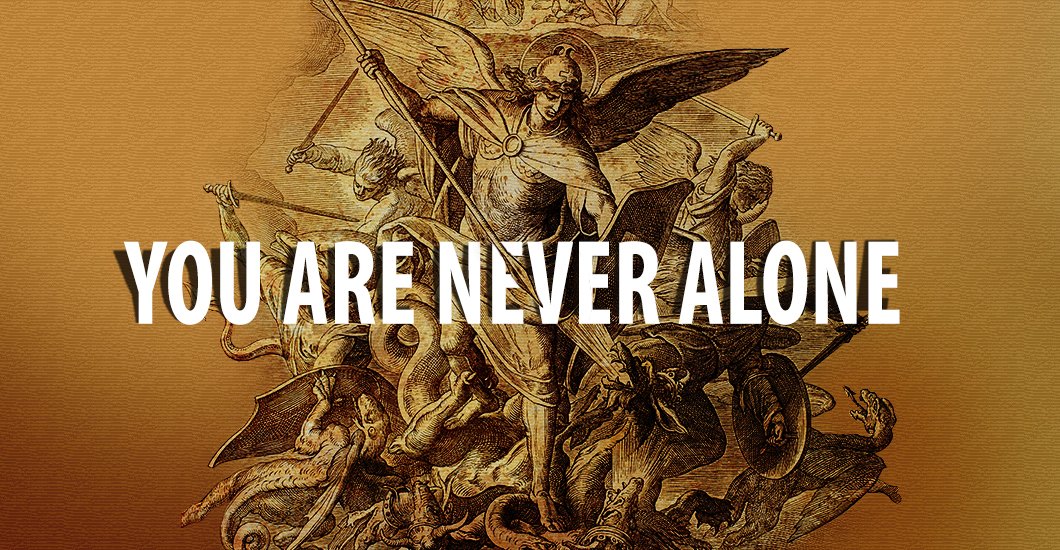
From our childhood days, most of us can remember a daily prayer to our Guardian Angel. The prayer of my youth went: “O angel of God, my guardian dear, to whom God’s love commits me here, ever this day be at my side, to light and guard, to rule and guide.”
Angels are a consistent feature of the Jewish and Christian understanding of our spirit-world. They have a high profile in Christian tradition, regularly referred to by Jesus Himself. Modern portrayals of angels in pictures and statuettes tend to take them less seriously, indeed a new angel-culture has become popular commercially which does not reflect the angels of Scripture and tradition.
Angels are to be found in the Bible from its opening pages. We find an angel guarding the gate of Eden in the book of Genesis. In the last book of the Bible, the Book of Revelations, it is the angel who announces the Day of Judgement. Jesus is strengthened by an angel in the garden of Gethsemane.
Angels appear in the Bible as messengers from God to His people. Only three angels are given specific names–Raphael, who accompanies Tobias on his travels and protects him, Gabriel who comes to Mary and asks her to be the mother of Jesus, and Michael, who is named in the Book of Revelations as the angel who leads the angelic forces against the devil. Angels are also referred to in the Bible under different groupings such as Cherubim, Seraphim, and Powers. There are nine groupings in all. In some places in the Bible, angels seem to represent God Himself. The visit of God to Abraham in Genesis 18: 1-2 is one such example.
Angels are taken for granted in the writings of Saint Paul. They are constantly referred to as part of the believer’s landscape. To the Christians at Rome, Paul writes: “for I am certain of this. Neither death nor life, no angel, no prince, nothing that exists can come between us and the love of God made visible in Christ Jesus our Lord” (Romans 8:38). To the Christians at Corinth he writes: “If I have all the eloquence of men and of angels, but speak without love, I am simply a gong booming or a cymbal clashing” (1 Corinthians 13:1). To the Christians at Thessalonica he speaks of the end time: “At the trumpet of God, the voice of the Archangel will call out the command and the Lord himself will come down from heaven” (1 Thessalonians 4:14).
The prayer of the Church is also very rich in the understanding of angels, and prayer is always an expression of the Church’s belief. In the Eucharist, we include angels in our vision of worship. At the very beginning of each Mass we ask the prayers of “all the angels and saints” for forgiveness of our sins. At the Preface to the Eucharist Prayer we join with the “choirs of angels in heaven” in their unending hymn of praise. In the first Eucharistic Prayer we pray, “We ask you, almighty God: command that these gifts be borne by the hands of your holy angels to your altar on high, in the sight of your divine majesty ..” The angels are part of our dialogue with God.
Devotion to the angels has been very rich in popular piety. Surely one of the most beautiful awareness’s is that God has given us a personal angel to guard us through life. Yes, we each have a personal friend at God’s throne – our Guardian Angel. Jesus refers to this in Matthew 18:10: “See that you never despise any of these little ones, for I tell you that their angels in heaven are continually in the presence of my Father in heaven.”
Saint Michael the Archangel is often venerated on mountains. One can think of Mont San Michel in Normandy; Skellig Michael off the coast of Kerry; or St Michael’s Mount, a small tidal island in Mount’s Bay, Cornwall, England. There has been a recent revival of devotion to the Archangel Michael, recalling the practice of reciting, in public, a prayer to Saint Michael after each Mass in the liturgy prior to Vatical II. Many of an older generation will remember it by heart:
“Blessed Michael the Archangel, defend us in the hour of darkness. Be our protection against the wickedness and snares of the devil. May God restrain him we humbly pray and do thou, O Prince of the heavenly host, by the power of God thrust Satan down to hell and with him all those wicked spirits who wander through the world for the ruin of souls.”
The Catechism of the Catholic Church (328 & 336) tells us:
“The existence of spiritual beings, that Sacred Scripture usually calls “angels” is a truth of faith. The witness of scripture is as clear as the unanimity of Tradition…. From infancy to death human life is surrounded by their watchful care and intercession. Beside each believer stands an angel as protector and shepherd leading them to life. Already here on earth the Christian life shares by faith in the blessed company of angels and men and women united in God.”
'
Ruth Knutson is the wife to Dr. Ron Knutson, an anesthesiologist in Bismarck, North Dakota. Together they have five children. No one would suspect such a poised and joyful person to have had a childhood full of extreme abuse and neglect. But Ruth points out, “It’s what we do with the rest of it that is our story.”
Growing up in Williston, Ruth’s bad-tempered, alcoholic mother was not married to the father she never knew. There were four half-siblings; an older brother and younger sister and two younger brothers. “My house was a disaster,” she said. “If I put stuff in the laundry, I never saw it again.”
One of Ruth’s earliest memories was at five-years-old, pleading with her mother not to leave her with the abusive stepfather. Her mother would not protect her. Two of their houses burned down; one from electrical problems and the other because her three- and four-year-old little brothers were home alone playing with matches.
THE LIGHT OF CHRIST
Amid the chaos, there was her grandmother. Her grandmother had eleven kids and her grandfather had died of cirrhosis of the liver from alcoholism in his late forties. “My grandmother always made me feel safe,” Ruth explained. Her relationship with Jesus began at Mass with her grandmother. “I thought: Jesus suffered and made it through, so I can make it through too.” Years later, when Ruth married Ron, she joined him in the Lutheran church.
As a third grader, Ruth recalled telling God that she had enough. “I told him I didn’t want this life and that I wanted to die and be done,” she said. “I felt God tell me clearly: This is not your life.” It gave Ruth awareness that she had a future to live for and that her terrible home life had nothing to do with her.
A WAY OUT
Years of looking out for her siblings and trying to keep the home in order were overwhelming. By sixth grade, Ruth walked to her social worker’s office and asked to leave. She and her sister, who was eighteen months younger, were placed with different relatives for what became the first of Ruth’s four foster homes.
When her sister was sixteen, she ran away to Wyoming and eventually had two children; one she gave up for adoption, the other was raised by the father. Her sister died five years ago at forty-nine of cirrhosis of the liver. Ruth’s three brothers have also struggled with addictions.
She reached out to them to help, but they made other choices. Ruth does not judge, however. Much their life was beyond their control, such as getting drunk for the first time at two-years-old or being drinking buddies with their mom in junior high. Ruth attributes her own happiness and fulfillment with God and family but said there is a lot of randomness we cannot control.
While in high school, Ruth met her future husband who was two years older. “He knew my mom was a character and that I was in foster care, but he didn’t run away,” she said. By the time she was a senior in high school and he was a pre-med major in college, they married.
“I can’t emphasize enough the love and support that Ron has had for me and how blessed I feel to be a wife, mother, and grandmother,” she said. Ruth stayed home to care for her family until the youngest went to school. Then she earned degrees in addiction counseling and social work and was an addiction counselor for seven years. “I loved working with patients and realized we are more alike than we are different,” she said. “I really think the 12-steps [to sobriety] is a spiritual journey; one that we can all take by surrendering to God.”
REUNITED WITH HER MOTHER
Ruth believed that she had overcome her past, but then learned twenty years ago that her mother had lung cancer. She felt that if she really had forgiven her mother, she needed to go visit. Ruth drove to Minot and brought her mother back to Bismarck. “God’s grace filled me with peace,” Ruth said. “I felt so sorry for her. She never experienced how much love children give you and you give them.”
Her mother had been sober for ten years, earned a math degree, and worked as a tutor. “I wanted her to say she was sorry, but I had a light bulb moment and suddenly understood that she never saw me as a child,” Ruth said. “She was never able to be my mother, but I realized I had a small window of time to be her daughter.”
During the six months they had left, Ruth visited frequently, often telling her mother: “I love you.” It was something Ruth had only heard once from her mother from behind a door.
Soon, her mother started saying it back. When her mother died in October 1995, it seemed both mother and daughter were at peace. “That time was a gift,” Ruth said.
There is one more part to the story, however. “The story would not be complete without forgiving yourself,” Ruth said. She had to forgive herself for not being there for her sisters and brothers and for not trying to start a relationship earlier with her mother.
In the end, Ruth said that her past has given her a heart full of gratitude. Even the bad things are part of the blessings of her life today. For instance, while raising her children, she taught them compassion in a meaningful way. “If you make fun of someone for dirty hair or messy clothes, know that you would have made fun of me when I was a little girl,” she taught them.
“I always ask God what I’m supposed to see,” she said. “I’ve come to understand that there is something to learn in every circumstance. My prayer has always been, ‘Dear God, give me eyes to see, a mind that is open and a heart filled with compassion.’
'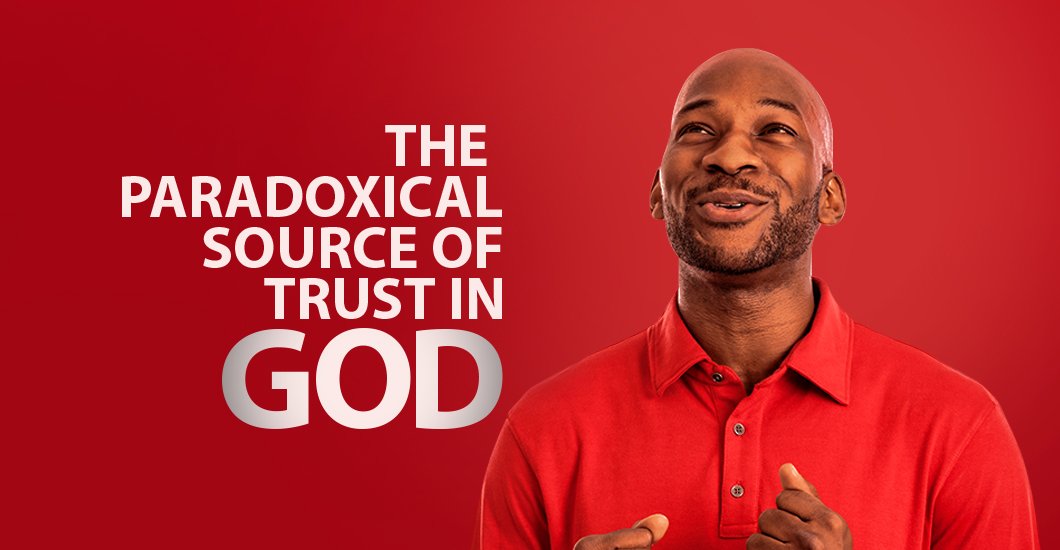
One of the Five Hard Truths that will set us free is this one: “You are not in control. “This unnerves us, even terrifies us at times. We like to be in control, but control is an illusion; things you think you control are resting on things you cannot control such as the next beat of your heart or even the continued existence of the cosmos! No, we are not in control.
Come now, you who say, “Today or tomorrow we will go into such and such a town and spend a year there and trade and make a profit”— yet you do not know what tomorrow will bring. What is your life? For you are a mist that appears for a little time and then vanishes. Instead you ought to say, “If the Lord wills, we will live and do this or that.” As it is, you boast in your arrogance. All such boasting is evil (James 4:13-16).
This is just another way of saying that we are not in control. The paradox is that accepting this hard, even terrifying truth is what frees us from many fears and anxieties. Uncertainty is not the deepest source of our anxiety, rather it is our desperate clinging to control and our insistence on our own preferred outcomes. We do not always (or even usually) know what is best for us. Abandoning ourselves to God’s wisdom and leadership is the only path to true peace.
C.S. Lewis wrote, “What are we to make of Christ? … [Rather] it is entirely a question of what He intends to make of us …. Try to retain your own life and you will be inevitably ruined. Give yourself away and you will be saved …. Whatever is keeping you from God … whatever it is, throw it away …. And do not be afraid. I have overcome the whole universe” (The Business of Heaven, p. 33).
The only solution is to trust God. Now trusting does not mean assuming God will eventually give what you want. No, trusting is believing that you will be just fine with whatever the Lord wants. Notice that trusting does not necessarily mean jumping for joy at what God decides. What He decides may not turn out to align with our preferred outcome. Most of us prefer health to sickness and wealth to poverty. We want God to say “yes” to our requests, not “no” or “later. “Trusting means being serene and “OK” with what God decides. In this is our path to peace.
All of this is easy to say but hard to do. We need to accept our poverty, our inability to relinquish our illusion of control and trust God. We need to beg for greater trust. Say with the ancient disciple, “I do believe, Lord. Help my unbelief” (Mark 9:24). Say with the apostles, “Lord, increase our faith” (Luke 17:5).
'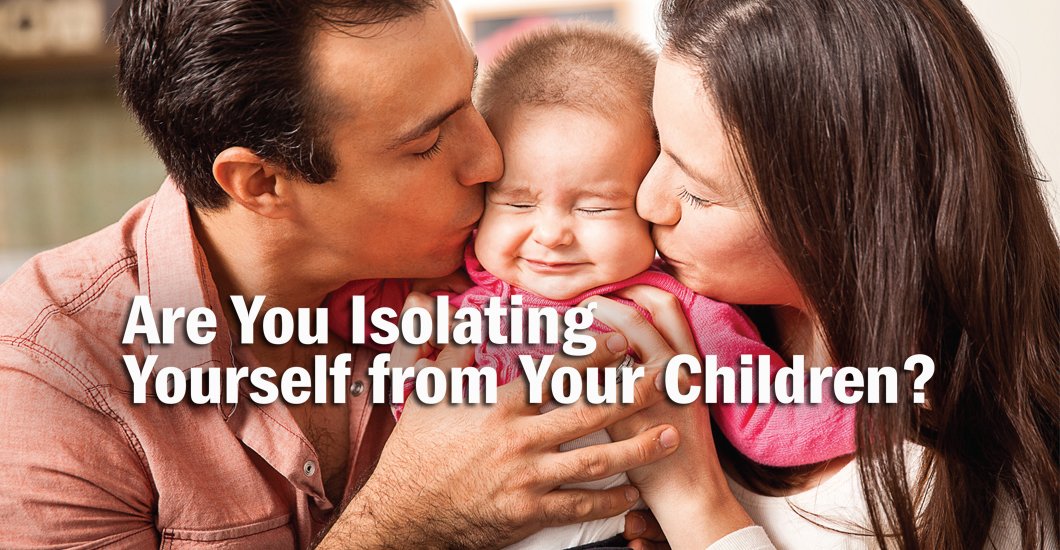
There comes a time when parents simply want some quiet time to themselves. Handling the rigors of parenthood by meeting the temporal and spiritual needs of our children can take a physical and spiritual toll. This carnal desire is something almost every parent goes through. It is not a sinful desire per se for a parent to seek a retreat or respite of sorts from his or her children. What can lead this desire toward the stages of sinful behavior is the intention of deliberately removing ourselves (isolating) from caring and teaching our children.
A subtle but troubling trend I have witnessed over the last several years is the parental desire for some peace and quiet replaced with the act of parents isolating themselves from their children. What I mean here is a gradual separation of the spiritual, emotional, physical and psychological relationship between parent and child. Whether the reason is work, family structure (i.e., singleparent family), working parents or the daily distractions that come from daily living, the intimate relationship between parent and child appears to be gradually eroding for more reasons than the ones just mentioned. By nature, children desire to be near their parents—it is part of the protective nurturing process all children seek. When this parent-child structure is interrupted the alternatives may not always be spiritually healthy and in a worst-case scenario lead to direct isolation which then becomes the norm of parenting.
The “Catechism of the Catholic Church” (“CCC”) reminds us that the Christian family is a communion of persons, a sign and image of the communion of the Father and the Son and the Holy Spirit. … The relationships within the family bring an affinity of feelings, affections and interests, arising above all from the members’ respect for one another. The family is a privileged community called to achieve a sharing of thought and common deliberation by the spouses as well as their eager cooperation as parents in the children’s upbringing (“CCC,” 2204-2205).
The Sin of Isolation
In his letter to the Ephesians, Saint Paul tells us that we are to grow up in every way into Him who is the head, into Christ from whom the whole body, joined and knit together by every joint with which it is supplied, when each part is working properly makes bodily growth and up-builds itself in love (4:15-16).
Our identity as parents rests in our understanding and willful intent to place Jesus Christ at the center of everything we do, especially our parenting. every time a parent asks, “What should I do about my son?” I immediately tell him or her to first begin to be genuinely present. It is very important that a child knows that his father and mother are there both spiritually and physically. The ease by which one can fall into what I call the sin of isolation from their children is why the virtue of presence is so important. When isolation begins to occur, the child will, more often than not, direct his attention toward something that will draw his desire away from his family and replace it with another outlet, typically one involving social media.
Saint John Paul II reminded us that the family finds in the plan of God the Creator and Redeemer not only its identity, what it is, but also its mission, what it can and should do (Familiaris Consortio, 17). This means that our actions as parents are intimately called to re-echo Christ. One facet of this action is to bring Christ into the home in prayer. When we invite and initiate a relationship with Christ within the home, it strengthens the family unit and provides a spiritual base by which the family can withstand the sin of isolation. Parents must regard their children as children of God and respect them as human persons. Parents have the first responsibility for the education of their children. They bear witness to this responsibility first by creating a home where tenderness, forgiveness, respect, fidelity and disinterested service are the rule (“CCC,” 2222-2223).
A recurring theme on the family found in the “Catechism” is the practice of showing respect to our children. This act of love is very important in avoiding the sin of isolation because it reaffirms the Christian anthropology of the family. This means that the parent child relationship was not created to be isolated from one another.
Addressing the Sin of Isolation
A sound and practical way of avoiding the sin of isolation is by being present to our children, especially in prayer. Children desire reassurances from their parents, which include their physical presence. The process of accompaniment between a parent and child involves the simple act of recognizing the dignity of the child. This act of love dispels any temptation to isolate ourselves from our children because we see them as authentic gifts from God.
One of the surest ways to dispel parental isolation is through the practice of intercessory prayer. Simply put, intercede (pray) on behalf of your children and offer them to Christ. At the heart of the act of intercessory prayer is the deliberate act of the will to think of someone other than yourself. You place the intentions of the person before yours and in this case our children before us. The gift of intercessory prayer is that it allows us to always be present with our children and that is exactly what our parental call is all about.
'
Why did my older children insist that the new baby’s name must be “Joy?” It was the strangest thing: one day when I was still pregnant, my four-year-old son got it into his head that “Joy” was the baby’s name and he has not backed down since. When guests refer to her by her real name, he or my two-year-old will adamantly correct them that she is to be called “Joy.” They have been so insistent that our family has just given up and officially given her that nickname.
Meanwhile, her real name is Catherine. It is odd because Catherine was never a name I felt drawn to—it was not even on the list for consideration with my other daughters. Yet as soon as I found out that this baby was a girl, I knew that that was her name. We never seriously discussed any other options. I did not feel like I was choosing a name for her as much as it seemed like I was just articulating the name she already had.
I wondered if perhaps there was a reason for this, so I prayed to know if there was any particular saint named Catherine whom she was supposed to be named after. Soon after I said that prayer, a package with a painting of Saint Catherine of Siena arrived in the mail. My uncle had been traveling Italy. He just so happened to be in Siena on the day she was born so he got the picture of the famous saint for the baby. He did not know what day she was going to be born—it was just a “coincidence” that he was in Siena that day.
I figured that was probably an indicator that she was meant to be named after Catherine of Siena, but wished I had a little more certainty. Then, while researching something unrelated, I came across the biography of Catherine of Siena. My jaw dropped when I read: her family gave her the pet name of Euphrosyne, which is Greek for Joy.
I guess that answers the question.
'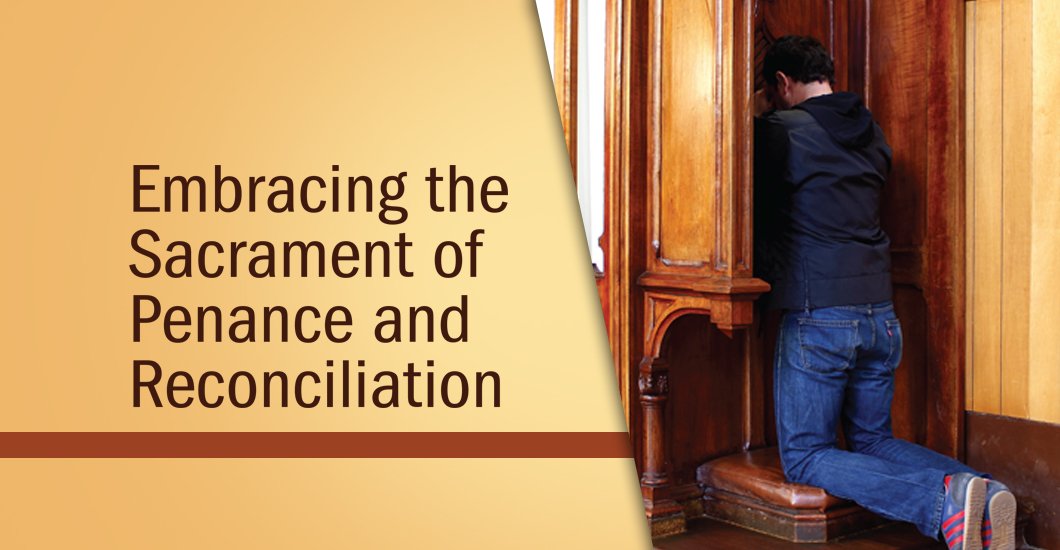
Many of us who grew up in the Catholic faith were told that confession is good for the soul. However, as children preparing for the Sacrament of Confession, most of us were rather anxious about entering the darkened confessional booth and sharing our deepest, darkest secrets with the parish priest.
Once we entered the confessional, despite being nervous about using the correct liturgical wording and format, we quickly discovered that it was fairly simple and straightforward, and we wondered why we had been so fearful. Nevertheless, we were in no hurry to return to the confessional booth.
As Catholics, we are only obligated to confess our mortal (serious) sins to a priest once a year. Mortal sin kills our supernatural soul and severs our relationship with God. Although the number of Catholics partaking of the sacrament has steadily decreased over the past four to five decades, there has been a recent trend among Catholics to confess more frequently in order to sacramentally receive God’s sanctifying grace and thus deepen our intimate relationship with God.
Unfortunately, there has been great misunderstanding about the Sacrament of Reconciliation (the name to which it is most often referred) which has kept many Catholics from receiving this vital sacrament. Most of the confusion stems from the erroneous belief that Catholics are confessing their sins to a man (the priest). But, the priest acts in Persona Christi, that is in the person of Christ. So we are confessing our sins to Christ. In addition, during the past several decades people have developed a decreased sense of sin. Rather than acknowledging and admitting to sin people rationalize and deny sin. Not only does rationalizing mitigate and eliminate the perception of sin, but it often leads to more serious sin.
In Matthew 9:6 (NABRe), Jesus says of himself, “But that you may know that the Son of man has authority on earth to forgive sins.” Then Jesus exercises His authority when He says to the paralyzed man, “your sins are forgiven.” This passage concludes by informing us that the crowds were awestruck and they glorified God, “who had given such authority to human beings.” Jesus was given the authority to forgive sins by His Father.
On the night of the resurrection, Christ appeared to the disciples and said, “Peace be with you. As the Father has sent me, so I send you.” And when He had said this, He breathed on them and said to them, “Receive the Holy Spirit. Whose sins you forgive are forgiven them, and whose sins you retain are retained” (John 20:21-23, NABRe). As we can see in this passage, Christ instituted the Sacrament of Reconciliation for the Church.
After the resurrection, Jesus knew that He would no longer remain with the Church in human form as He would be ascending to heaven to sit at the right hand of His Father; therefore, Christ conferred the power to forgive sins to His disciples in order for the Church (which would be the continuation of His presence until the end of time) to offer forgiveness to generations in the future. According to Archbishop Fulton Sheen in “Life of Christ,” “Just as Jesus’ own human nature was the instrument in His divinity in purchasing forgiveness, God would forgive sins through men, who were the appointed ministers of His forgiveness.” Therefore, the power of forgiveness and reconciliation has been acquired by the price of Christ’s blood.
Sin not only disrupts our relationship with God, but it damages our relationship with others in the community (the Church). Despite being cleansed of original sin through baptism, Christ knew that human beings by nature were imperfect and would continue to sin. Christ’s plan for rectifying this was to establish a sacramental mechanism for man to repair his relationship with God and with his fellow man (the Church) for sins committed after baptism.
In seeking and receiving God’s forgiveness, we sacramentally receive God’s mercy and grace. Grace is a gift of the Spirit that sanctifies us and justifies us. According to the “Catechism of the Catholic Church” (“CCC”), “grace is participation in the life of God” and it “introduces us into the intimacy of Trinitarian life.” When we partake in the Sacrament of Reconciliation, we obtain the following benefits:
1. Through the examination of conscience, we are forced to recognize our shortcomings and faults. By confessing our sins aloud, we overcome pride. We are thus reminded that we are imperfect beings who need to rely on God in order to overcome our sins and to grow spiritually.
2. When we are forgiven, our guilt is erased and the heavy burden of sin is lifted from our shoulders. We are pardoned from eternal punishment incurred by mortal sins. In addition, we are remitted, in part, from temporal punishment for venial sins. Through the healing power of forgiveness and reconciliation with God and the Church, our peace of mind is restored and we experience spiritual consolation.
3. Jesus’ call to conversion is made sacramentally present in the Sacrament of Reconciliation. We regain our baptismal grace and heal our wounded ecclesial communion. This permits us to become more holy, more saintly, and more conformed to the image of Christ. Through sacramentally receiving Gods’ mercy, we are encouraged to be merciful to others.
4. With our conscience purified, we receive the Holy Spirit’s gift of counsel, which enlightens us to resist temptation and evil and to make the right moral choices. When our self-control is tempered, we are more determined to follow God’s Will. This reinforces us spiritually for living the Christian life.
5. By placing ourselves before God and asking for His mercy, we are preparing ourselves for the particular judgment at the conclusion of our lives. According to the “CCC,” it is only through choosing conversion that we may be granted entrance into the Kingdom of God. Christ instituted the Sacrament of Reconciliation as the proper avenue for the forgiveness of sins and to reconcile us with God. Since we were created by God and for God, He wants to have an intimate friendship with us. When we understand that the Sacrament of Reconciliation restores us to God’s grace and full communion with Him, we should fully embrace the free gift that our loving God has bestowed upon us in this sacrament.
'
I really did not want another cesarean (“C”)-section. I asked everyone I knew (and even those I did not know) to pray, that I would be able to avoid the procedure that had lengthened my recovery period so dramatically after having my twins (only 15 months ago). I enlisted all my favorite saints and assured new saint recruits that they would be listed among my favorites in gratitude for their intercession. Saint Therese sent me a rose to let me know she had my back and my little ones added their powerful intercessory prayer to every family rosary. But in the end, God said no.
Every factor that needed to fall into place to allow for an attempted vaginal birth after C-section (VBAC) fell through. I had been given little glimpses of hope, contractions starting the morning I needed them to but stopping instead of intensifying. Every spark of hope became a source of torture, like someone holding an iced cappuccino (my severe prego craving) in front of my face and whisking it away just as I reached out for it. I stared at the rose from Saint Therese and almost wished I could send it back. I was hurt and felt so abandoned by a Heavenly Father who had so often given me more than I deserved. How could He say no to something that would clearly be better for my family and me? Why would He want to increase my suffering? I knew He loved me, so it pained me knowing that the Lord of my heart, the One who could easily move mountains and make paths in the desert, was choosing not to move this baby out in a way that would be less traumatic for my body and would end up laying a heavier burden on my family.
“I can’t believe He’s not answering my prayer,” I told my husband. My husband’s response was, “He always answers our prayers.” My eyes were burning with tears at that point. “But His answer is no, so it doesn’t really feel like an ‘answered prayer.'”
Then God brought me to the garden of Gethsemane, at least mentally. Every time I prayed my mind was filled with the image of Christ begging His Father to save Him from the suffering that lay ahead—praying and weeping with such intensity that His sweat and tears became drops of blood.
“Father, if You are willing, take this cup from me; yet not my will, but Yours be done” (Luke 22:42).
And so I wanted to joyfully pick up my cross and follow Him, but I could not—because I am weak, because I hate pain, because I liked my plan for how things should go MUCH more than the plan God had for me.
I was comforted to see that even Christ could cry out with the voice of humanity and be struggling with the sacrifice He was being called to make, but I realized fully being His follower would mean that I also would have to say, “Thy will be done,” and find a way to offer the trial at hand for the good of others.
Do not laugh at me, but first I needed to grieve. I had to grieve the loss of MY will. As pathetic as it may seem, I went through the five stages of grief within two days. I experienced denial, fantasizing about secretly giving birth at home or devising some sort of plan to avoid the inevitable. I hit up the anger stage. I was so mad and frustrated that I took it out on … well, puzzle pieces. Usually, when I would find the kids’ stray puzzle pieces I would locate the proper box and put them away but not this time! I took those babies and whipped them into the recycling bin, “HA! Say bye, bye!” (I know pretty lame, but we do have too many incomplete puzzles). I bargained with God (along with all my enlisted saints) and assured Him I would write a very flattering blog about how He always comes through in the end, if He would just make a way for me.
Next, I just gave up and entered the depression stage where I cried hard, distanced myself from everyone and generally felt sorry for myself. Finally, I reached the coveted stage of acceptance and here is where I began to ask those around me if there was something that was weighing on their hearts for which I could offer my disappointment and impending recovery period. I offered my pain in hearing no from God and asked if He would in turn say yes to the other women I knew who were hoping for a vaginal birth after cesarean (VBAC), as well as all those women who were praying for safe and healthy deliveries. Because in the end, God’s ‘no’ to one thing is often a huge ‘yes’ to something else.
A friend of mine who prayed for years that God would fill her womb with a child was met with a firm ‘no’, but elsewhere another woman was bringing several children into the world (in spite of not being able to care for them) and those children are now in my friend’s arms. Had God said ‘yes’ to her, in her desire to mother her own biological children, she would never have considered adopting the little ones God had intended for her.
I do not fully understand why God said ‘no’ to me. I know there is a ‘yes’ somewhere. Perhaps I would have ruptured if I had attempted the VBAC, which could have caused serious harm to our newest little member, Callista Therese (I obviously got over my disappointment regarding the rose), or me. I may never know the reason, but I do think that in surrendering my will, perhaps I was able to offer more than I otherwise could have.
Thanks be to God, Callista arrived safely in May twentieth. Being the month of Mary, I am grateful to have been able to follow the example of Our Lady in her submission to God’s will, that I could come to echo her fiat: “Behold, I am the handmaid of the Lord; let it be done unto me according to Thy word” (Luke 1:38).
'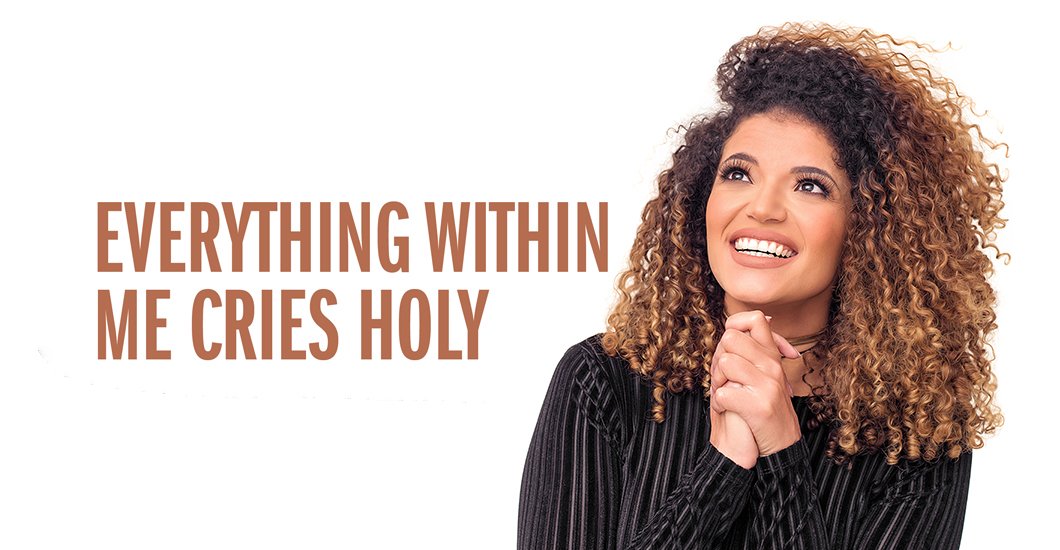
“Everything within me cries ‘Holy! Holy! Holy is the Lamb that was slain.’” These words are from an inspiring worship song that I have occasionally sung at Mass and at prayer group. However, after watching Mel Gibson’s movie, The Passion of the Christ, The Passion of The Christ, the words of this song have taken on a deeper meaning for me.
I have always understood and believed intellectually that Jesus had to suffer and die for my sins. But watching this movie has made me intensely aware of the extent of His inconceivable suffering. Isaiah 52:14 says, “Many were amazed when they saw Him, beaten and bloodied, so disfigured that one could scarcely know He was a person.”
By time the Roman soldiers had mercilessly beaten Jesus, His bloodied, bruised, wounded body was very difficult for me to see. I found myself wanting to cover my eyes, as I did not want to look upon Jesus in this way and to realize He willingly suffered all of this for me. Rather, I wanted to see Jesus in His glorified body, sitting at the right hand of the Father. Indeed, Scripture tells us it was our infirmities that He bore, our sufferings that He endured. He was pierced for our offenses, crushed for our sins. Upon Him was the chastisement that makes us whole; by His stripes we were healed.
I can only imagine the kind of love Jesus has for you and me that He willingly took on this indescribable physical and emotional agony. I can only imagine what it was like for Jesus knowing that His Father had to turn His back completely on His son during His terrible suffering. God the Father’s tears fell from Heaven as He heard his precious Son cry out in a painful voice, “My God, My God, why have you forsaken Me?” (Mark 15:34). I can only imagine that God the Father breathed a gigantic sigh of relief when Jesus uttered those penetrating words, “Into your hands I commend my Spirit” (Luke 23:46). Jesus was willingly led like an innocent Lamb to the slaughter, for you and for me.
I can only imagine what it was like for Mary to stand and watch helplessly as her precious son was so severely beaten. With each excruciating painful time Jesus fell under the tremendous weight of the Cross, Mary’s heart was being ripped into a million pieces. It must have taken great courage and faith not to try and rescue her son from this horrible, deplorable torture. But Mary knew this had to be. Mary knew that her son had to suffer and die on the cross for all of us. Jesus surrendered Himself to death to take away the sins of many and win pardon for all our offenses.
Jesus destroyed death and sin once and for all and opened up the door for eternal life for each of us. Jesus declares: “Love each other as I have loved you” (John 15:12). How does Jesus love us? “Greater love has no one than this, that he lay down his life for his friends” (John 15:13).
At Easter, as I join with others in rejoicing and celebrating the Resurrection of Jesus and joyfully sing, “He is Risen from the Dead and He is Lord,” I will indeed remember His indescribable suffering and death on the cross. I will also know on a more passionate level that Jesus loves me so infinitely that if I were the only person in the world, He would have suffered and died just for me.
'
A pillar of Benedictine spirituality is hospitality. According to the Rule of Saint Benedict, everyone, without exception, is to be received as Christ. As a novice oblate of Saint Benedict about to make my final oblation, I was convicted of breaking this iron-clad rule by two strangers on the night of December 12, 2013, the Feast of Our Lady of Guadalupe. After praying the evening office, I had just settled down to meditate when the doorbell sounded a clarion call I felt compelled to answer. Peering through the peephole, I recognized the face of a fellow Legion of Mary member whom I was planning to see later that evening at our weekly meeting. Brother Jack lived miles from my neighborhood in the opposite direction—alarmed, I opened the door.
Instead of Jack, there stood a tall 30-something man with remarkably similar features but much longer, wavy brown hair reaching to his shoulders. In spite of the frigid weather, he was wearing only a long-sleeved black crewneck shirt and a striking gold cross that caught the porch light. His arms were at his sides, as if standing at attention, and his hands were empty. He smiled expectantly, his warm brown eyes silently regarding me through the glass of the unlocked storm door that still separated us, apparently waiting for me to open it and invite him in. I was too dumbstruck to speak—all I could do was smile back and, with flailing arms, motion him apologetically away. Instead of going away, his smile widened and, mimicking my gestures, he said, “What’s this? Signing? I can do that.” Feeling foolish, I shook my head and slowly shut the door. As it closed, he said reproachfully, “Thanks for your hospitality!” Ouch. I may as well have slammed the door in his face.
Where were my manners? What was I afraid of? Being taken away from something on my agenda or being asked to do something I did not want to do? Ashamed, I opened the door to call him back, but it was too late—the stranger had already vanished into the night, leaving no calling card or flyer in sight. I attempted to resume meditating, but my rhythm was off and my mantra, “Come, Lord Jesus,” rang hollow. Instead, I decided to visit the adoration chapel before my meeting, instead.
Contrite in His Holy Presence, I read, then re-read, Mother Teresa’s “I Thirst” meditation that someone had handed me earlier at Mass. Though I thirsted for Jesus, did Jesus really thirst for a sinner like me? Stretching out my arms toward the monstrance, I whispered: “Come, Lord Jesus, come back to me,” but it was already time to leave for my meeting. As I made a quick stop to my car, a middle-aged man bearing a bouquet of roses approached with a question in Spanish. Smiling apologetically, I explained that I did not speak Spanish—a convenient excuse for avoiding conversation. Then he asked in perfect English if I knew where he could get water for the flowers. Caught off guard, I shook my head and repeated my excuse—now an inexcusable brush off. As I turned away, he said reproachfully, “I speak all languages.” Nailed again! I wanted to turn around and ask for another chance, but I knew this was my other chance and I had blown it, big time. Ashamed, I fled to my meeting.
Why had I not been helpful? Why had I not suggested the restrooms in the building where I was headed? Of what was I afraid? Being late for a meeting I knew could easily start without me? Being judged unfavorably for tardiness? Though I arrived on time, a goal I had been working on recently, self-congratulations, seemed cheap, won at the expense of fragile flowers, obviously meant to honor Our Lady on her feast day. As I pondered both encounters on the way home, all my petty sins became magnified in the harsh light of my selfish neglect of those flowers. Did Jesus really thirst for a sinner like me? Parked in my driveway, I wept at the hardness of my heart. Upon entering my house, my spirits were lifted by the surprise of Christmas lights my daughter had strung in the foyer. A little flower had been added to a vase which, only hours ago, had contained a few sprigs of red berries. On closer inspection, it was a rose—a spotless red rose with a stunning head of velvety petals! My daughter confessed that a mysterious woman had dropped it at the metro station; before my daughter could return it, the lady had vanished into the rush-hour crowd. I said no worries. The tiny rose, an advent symbol of the baby Jesus—sprung from the root of Jesse through the stem of Mary—welcomed her hospitality, while I welcomed another chance to offer mine.
Over the next few weeks, I cared for the thirsty rose, replenishing its vase frequently, enjoying its sweetness and beauty. I also became a better servant of the moment, stepping up in an emergency to lead the next Legion of Mary meeting, offering a parishioner a ride home from Mass in an unexpected snowstorm and wishing a telemarketer a blessed evening, despite my interrupted prayer time.
On Epiphany Sunday, the day of my final oblation, the rose was still lovely, remarkably preserved after 24 days. Though still unworthy of the promise to dedicate myself to the service of God and others according to the Rule of Saint Benedict, I was ready to make it, renewed through my belief in the “Rose E’re Blooming’s” infinite thirst for a sinner like me.
'
As a young man not yet even 20, I attended college, pursuing a degree in accounting. During my first year, given that I was very shy and introverted, and having had no close friends, I would eat my lunches alone, sitting on a bench on the campus lawn. This enabled me to avoid the hustle and bustle of the dining halls, where almost everyone else enjoyed their meals while socializing.
One day as I approached my usual bench, I noticed another young man was already sitting there. Thinking back to that day, I remember I was quite annoyed. That was my bench. “Go get your own,” I thought. As I walked by him, he must have noticed I was carrying a bagged lunch and he asked if I wanted to sit down. Begrudgingly, I did. We introduced ourselves. His name was David. After I began to eat my sandwich I remember looking over at this fellow and thinking that he looked very poor. His pants had rips (and not the cool kind of rips that many people used to do themselves) and his shoes looked as if they should have been retired many years ago.
A Life-Changing Conversation
I asked him if it was his first year at the school and further inquired as to what he was majoring in. Turns out he was working on his general education classes, with plans to move on to pre-law. I was impressed. I knew that some people do in fact become lawyers, but I had never really met anyone who had the determination to actually pursue it. As we talked and exchanged tidbits from our lives, I learned that David grew up in a small town about two hours from the university—a small, depressed town. In fact, David grew up very poor, much more than I had originally suspected. His mother died when he was a young boy, and his father raised him and his three siblings by himself. David was the oldest, so as his father went to work every day at one of the local factories and after school each day, David watched over his brother and two sisters while doing his homework. He also had a part-time job washing dishes at a local restaurant in the evenings several days a week. I asked David why he wanted to be a lawyer. He told me he wanted to help others who could not help themselves. He wanted to make a difference, for people and for God.
When his uncle asked him at the age of 14 what he wanted to be when he grew up, “a lawyer” was his response. From that day, he said he was determined to make it happen. He came in a tie with a fellow classmate to be the valedictorian of his high school. Between saving the money from his part-time job and being blessed with a well-deserved scholarship he was able to attend college. He was the first in his family to ever do so. David told me he could not afford to live on or near campus, so he drove to school every day from his hometown. It was a four-hour drive, each day, five days a week. I asked him how he had the time and strength to do this day after day. He responded by telling me that God gave him the strength. As I sat and listened to David humbly tell fragments of his life story, and his current situation, my only thought was that he inspired me. Our only connection was that I also grew up quite poor, and my father died when I was very young. But I definitely did not share his determination. At that point in my life, I was clueless as to how to proceed with my life, other than trying to show up for class on time every day.
David definitely inspired me not only with his determination, but also with his humble, kind and peaceful attitude. Here was this young man who, when faced with so many adversities, who had decided this is what he wanted and this is what he was going to do to make it happen. I would like to claim that I was there in the audience when David received his law degree. I would like to claim that David went on to become a lawyer who championed moral justice. I would like to claim that David and I went on to become life-long friends. Regretfully, I never again saw David. I went back to that same bench many times that year, hoping to see him, strike up another conversation and find out how he was doing, but he was never there. Regardless, I have never had a doubt in my mind that he did it—that he became the lawyer he wanted to be, helping people, just as he wanted to do.
A Determination to Persevere
David had a goal from the age of 14, and he worked hard and saw his goal become a reality. I knew it then and I know it to this day. The most important thing I took from that brief encounter is that David has always reminded me that a goal without action is really not a goal at all. David showed me that there is a big difference between saying you want something and actually working to make it happen. In my mind, I imagine that David worked and strived hard, perhaps even harder and with more adversity than other young students who also wanted to become lawyers. Saying you want something is one thing, but actually doing something about it is very different. We prove what we desire most by our actions, not by our words. Where our treasure is, there will also be our heart. We see this and experience it all the time, in others and in our own lives.
Since finding my faith, I cannot help but recognize the determination that each of us needs to live the type of life God wants from us. We want to be forgiving, but how often do we continue to hold grudges? We want to be more patient, but do we truly make the changes in our thoughts and actions to demonstrate patience? We want to start being more charitable, but do we avoid people who call on us for help? We desire to have more gratitude for what we have, but how often do we continue to want more, instead of appreciating what we already have? We desire to love God with our whole heart and soul, but how often do we find reasons not include Him, whether consciously or unconsciously, in our lives?
Less Talk, More Action
How often is what we say we want different from what we actually pursue? Again, saying you want something is one thing, doing something about it is very different. We prove what we desire most by our actions, not by our words. We should ask ourselves: Am I taking the necessary steps to grow closer in my relationship with God, a true relationship? Am I taking the steps to overcome my defects and let God turn them into virtues and strive for continual determination?
Much how David was determined to see his goal become reality, we have to keep going and never give up, no matter how many times we fall and even if we fall hard. We cannot give up. God loves us and is merciful. A desire to be a better person for God, without the necessary spiritual work to become that better person is just wishful thinking. Just how David showed and inspired me, it takes some work on our part—actions, strength, determination. We can do this, together, with God by our side. Never give up.
'